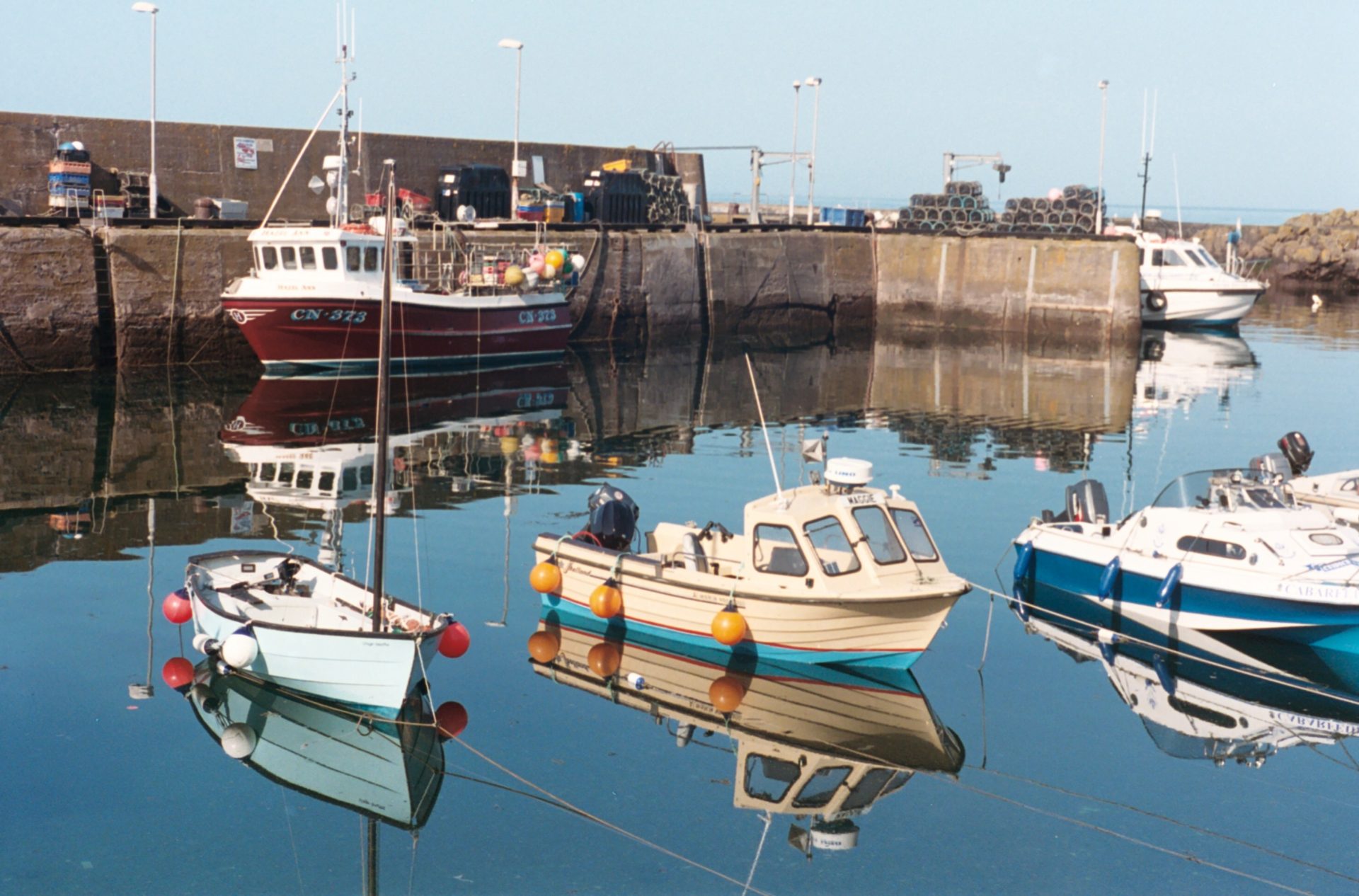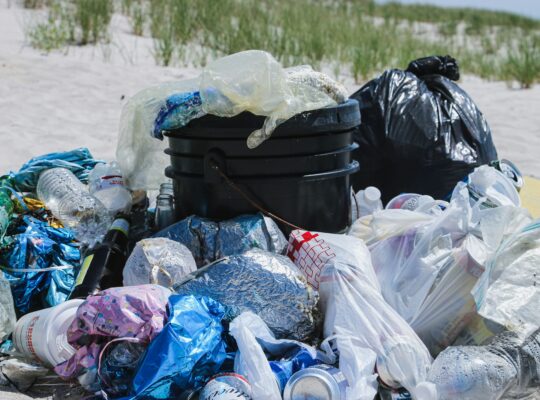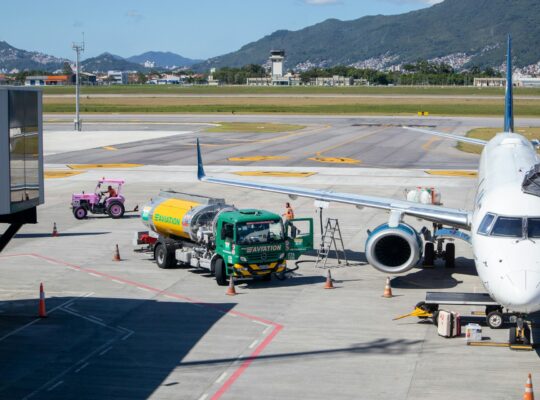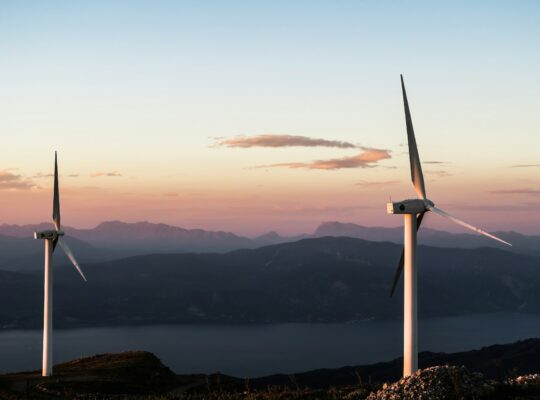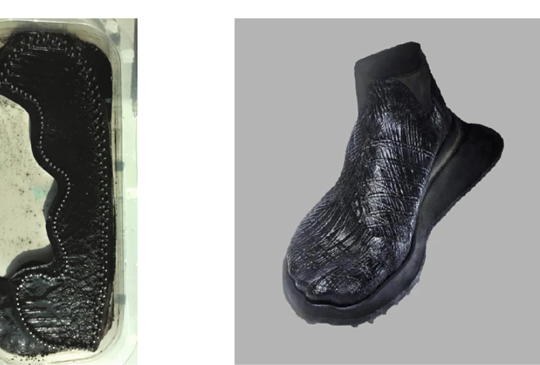Conservation-minded fishers with generations of wisdom: Lessons from Scottish and Spanish fishing communities
Conservation-minded fishers
“It’s in everybody’s interest, if you’ve got a fishing boat, to be conservation-minded because you’ve got to come back next year,.” says a fisher in St Abbs, a traditional fishing harbor in southeast Scotland.
Another creel fisher washed down his boat, saying, “I do feel deeply about the sea… I want it to be there for my grandchildren and my great grandchildren.”
Fishers in St Abbs held generations of wisdom, understanding, and caring for the sea better than most could dream to, yet seem inexplicably absent from the policy and management decisions that ruled their lives.
In a world where people’s eyes shift to their buzzing smart watches each minute, I hold deep respect for the fishers looking to the ocean’s horizon– artisanal fishers seem like super-people to me, relying on low-tech tools and their intuition to provide for their community while caring for the sea. Yet I felt like they were often getting the short end of the stick, squeezed between industrial fishing fleets, expanding offshore energy infrastructure, and well-intentioned but occasionally poorly designed “no take zones” in Marine Protected Areas.
So, for my MSc dissertation, I spent time in the traditional fishing communities of St Abbs, Scotland and Lira, Galicia, Spain to uncover parallels and solutions for ocean conservation and marine management. The regions share rough mossy cliffs, Celtic origins, and local economic dependence on artisanal fishing—using creels, long lines, and even hand harvesting to haul in lobsters and crabs, just like their fathers did.
I collaborated with St Abbs Marine Station, Blue Marine Foundation, and Fundación Lonxanet to connect with fishers in both harbors to weave together the areas’ new approaches to fisheries management alongside the fishers’ wisdom dating back hundreds of years– what can fisheries management and marine conservation learn from fishers? Is there a better way to collaboratively manage our seas?
While both coasts have fishing traditions dating back hundreds and thousands of years, they also have glimmers of a new wave of marine management—Lira’s marine reserve was designated by fishers themselves, while St Abbs is home to the Berwickshire Marine Reserve, Scotland’s first and only voluntary marine reserve.
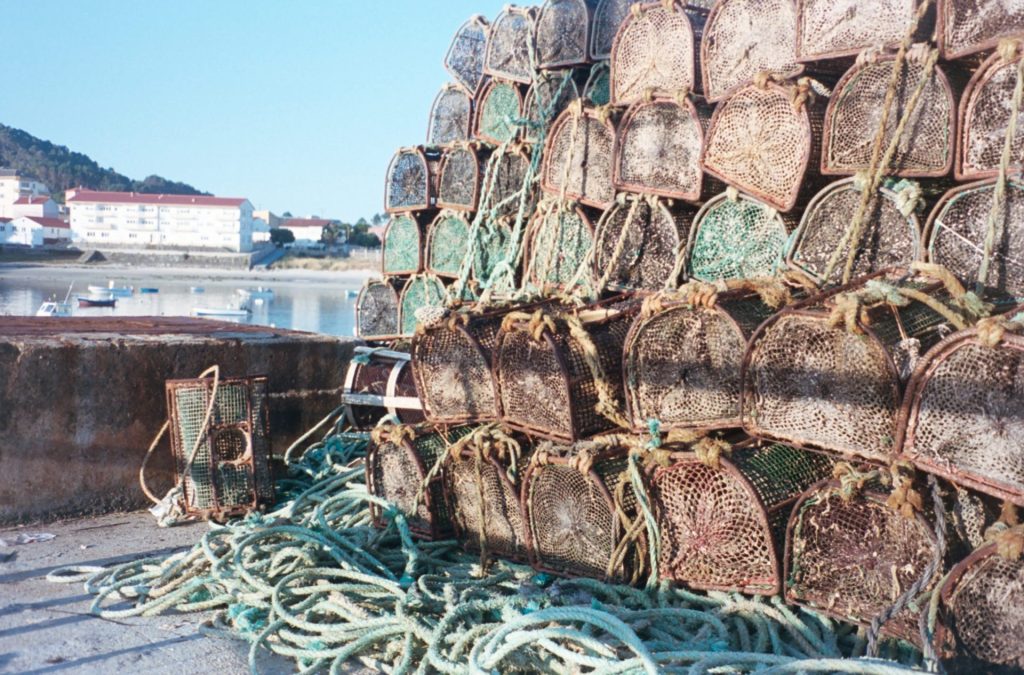
Disconnect between people and policy
As governments commit to protect 30% of the world by 2030 (known as 30×30), who should we listen to? Where, what, and who should we protect?
The UK’s approach to meeting 30×30 includes Highly Protected Marine Areas. The St Abbs fishers had yet to be consulted on this and were properly riled up while I was there. They spouted colorful criticism including: “If they introduce these highly protected marine areas… that’ll about just end me,” … “You get rules chucked at you and you don’t get any help,” … “That’s nothing to do with conservation. That’s a purely political move,” …”‘It’s idiotic idiots at the moment,” and “You could write to Marine Scotland and they’ll just ignore you. You could go to your local MP and because fishing is just a small thing and those people go listen, I’m more worried about the toilets in Coldingham than I’m worried about fishing.”
The ocean means the world to me. But to fishers, it is their whole world – as a St Abbs fisher noted, “It’s our life. We know nothing else, really.”
Generations of wisdom and stewardship
Both the fishers in St Abbs and Lira, Spain, were bringing generations of wisdom out to sea. Most of them learned the craft from their father—hailing from up to 12 generations of fishers—which fed into their innate stewardship, as one St Abbs creel fisher commented, “I do feel deeply about the sea… I want it to be there for my grandchildren and my great grandchildren.”
The salty bloodline was clear in Lira too, as a fisher explained, “My father, my grandfather, the neighbor… in the end, all the wisdom, your acquaintances, your ancestors are passing on to you, will be coming to you. Even if you see a fisherman around here, 20 or 30 years old, he has the wisdom of centuries.” As I weaved between heaps of octopus creels piled along Lira’s harbor, he elaborated, “What type of bait is best? What kind of net is better, which place is better… everything, all this is based on wisdom.”
Another Galician fisher reminds me that he knows this area like the “palm of my hand” – and that some other fisher can’t just come in and expect to be successful without generational wisdom, “Anyone can come here like from Scotland or anywhere, but he has to learn by himself, not from his father, so he won’t know what to do like I do … I know much more about the sea than everyone.”
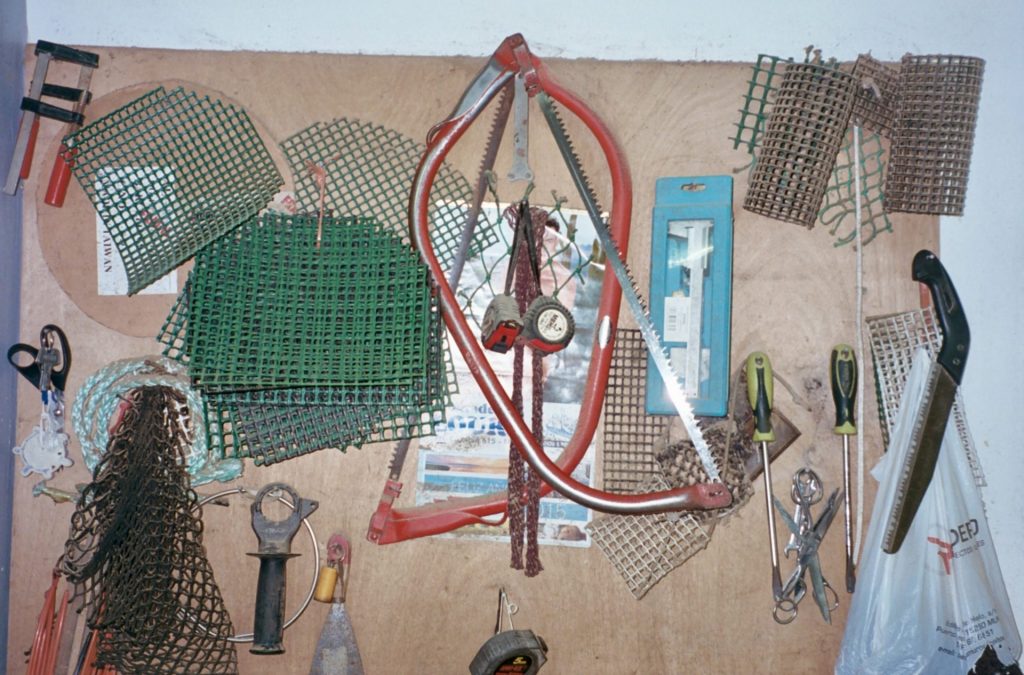
Co-Management as a solution?
Galicia, Spain offers glimmers of hope, as the artisanal fishing sector is run by localized cofradías – translating directly to brotherhood. Cofradías are co-management organizations, meaning they’re operated by fishers, for fishers, in collaboration with the regional government. While nothing new — the Spanish cofradías date back to the 12th Century – Lira represented a rare case of fishers creating and co-managing a marine reserve. Given their innate knowledge of the sea, they knew exactly where to put “no-take zones” and seasonal closures.
Most of the fishers I spoke with said the co-management is working well: “Co-management is good because it is a formula in which we make decisions regarding what is ours.”
The decisions are democratic, voting either in meetings or their WhatsApp group, and it’s a sea-to-wholesaler service, with the cofradía managing the regulation, processing, and distribution of the catches.
The Lira fishers seem to like the model, saying it’s working better than ever, and emphasize, “Who is going to understand more about the sea than the fishers themselves, than the people who are dedicated to the sea?”
Is it perfect? Not yet. Louder Lira voices are vying for more political power, since the regional and national governments still set many of the catch quotas, despite the recurring sentiment that officers in Brussels, Edinburgh, and Madrid should not be calling the catch: as one fisher put it, “When someone regulates the fish, it should be the fisher – not from Madrid, in Madrid there’s no sea.”
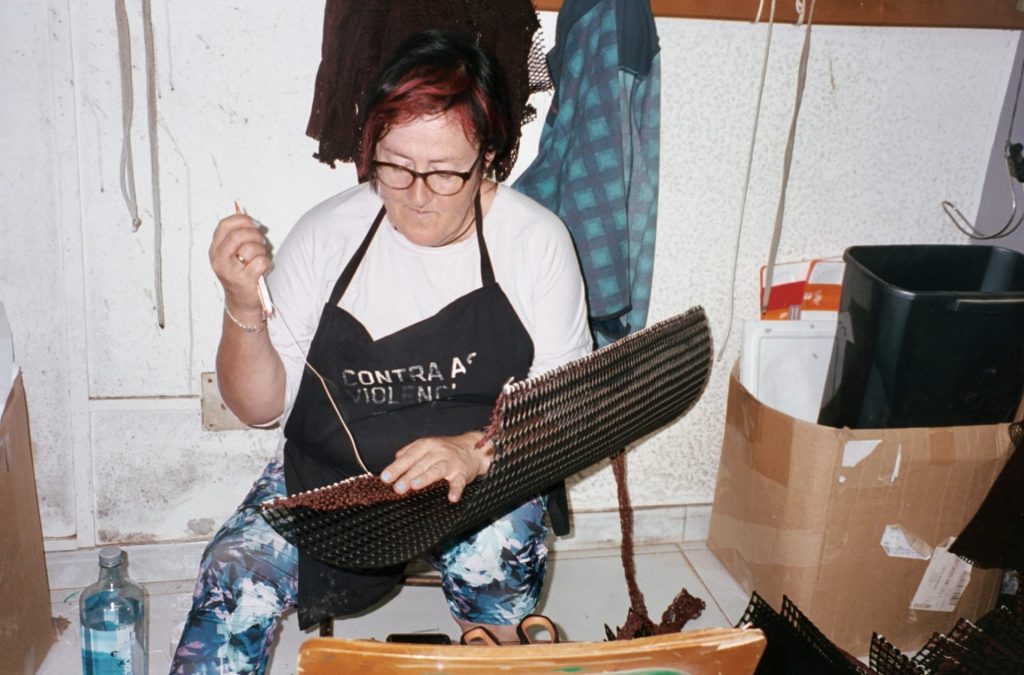
Culture and solutions
And of course, the sea isn’t just the foam and fish. It supports a way of life, feeding the culture that surrounds it.
As a Lira fisher put it, “The sea is the most important thing, it’s part of my life, it’s everything… it is a vital cycle in our area and part of our identity. … Any food that you eat here has a link with the sea, any construction that is built has a link with the sea, any celebration that takes place, that is, the culture itself is sea…”
And what happens when it’s gone? The surrounding ocean guardians, community, and heritage disappears.
Recognizing the value of fishers’ and coastal communities’ wisdom and innate ocean stewardship is the first step to equitable and effective ocean conservation. Research has shown that marine policy would be improved by integrating “marine cultural heritage” – a term describing “the evidence of past, present, and future human interactions with coastal and marine geographical or cultural areas, applying to tangible remains like shipwrecks but also intangible heritage like cultural practices, oral traditions, and fishers’ knowledge” [2, 3].
There’s an increasing momentum for marine cultural heritage to be more integrated into management and policy, as it’s shown to drive sustainable development, engaging local groups and effecting community-level change, and thus is an essential element in achieving the UN Ocean Decade’s mission to “achieve the ocean we want” by 2030 [2].
While many Marine Protected Areas are well-intentioned, they can forget to consult fishers who know the sea “like the palm of my hand” – resulting in ineffective or arbitrary boundaries while putting local communities out of work. Marine management is people management. Over three billion people rely on fishing to make a living, 90% of which is artisanal fishing – representing billions of potential ocean guardians. Solutions are underway, like the inclusion of cultural heritage in community-centred Marine Protected Areas in the Philippines, fishers leading shark conservation in Mexico’s Baja California Sur, and the first ever U.S. Indigenous Marine Stewardship Area declared in California.
Everything is interconnected, and if we’re to coexist with changing seas and political tides, we must listen to the interconnectivity between marine livelihoods and ecosystems. The people of the sea—the fishers, the communities of the waves—hold answers, but it’s a matter of elevating their voices and advancing mutually-beneficial collaborations. As I work as the Blue Humanities Editor and Partnerships Coordinator at seavoice, a new magazine delving into the interconnectivity between culture, people, and the sea, we’re working to elevate local communities’ voices – please give our magazine a read and get in touch if you’d like to collaborate or contribute. As we look to the past and look to each other, we should let rightful ocean stewards captain the change.
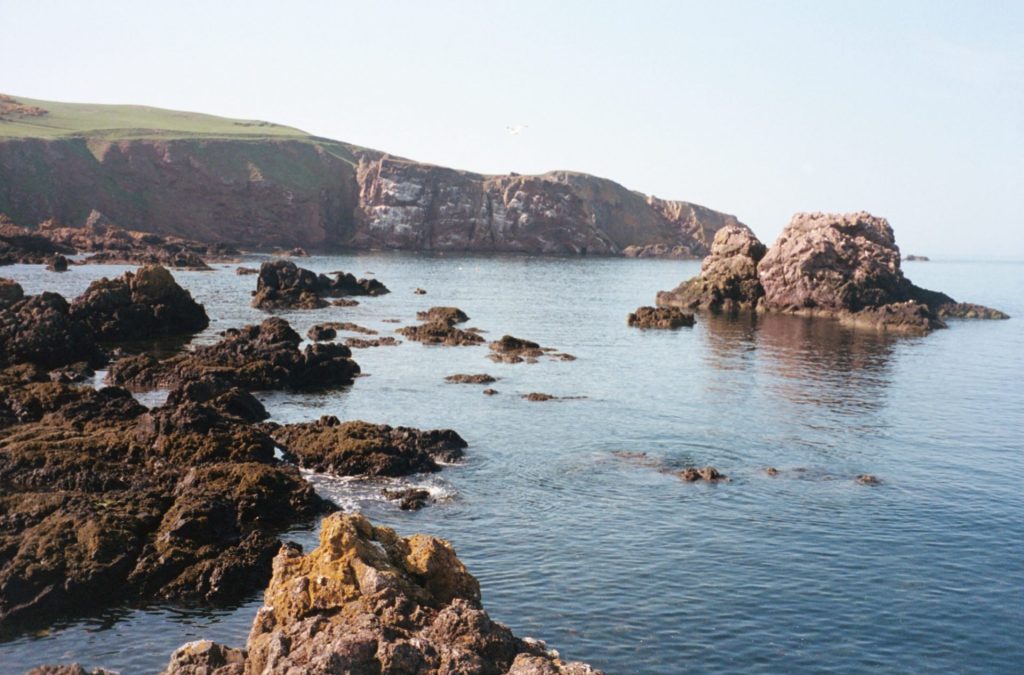
References
[1] L. Perez de Oliveira, ‘Fishers as advocates of marine protected areas: A case study from Galicia (NW Spain)’, Mar Policy, vol. 41, pp. 95–102, Sep. 2013, doi: 10.1016/j.marpol.2012.12.024.
[2] J. Henderson, ‘Oceans without history? Marine cultural heritage and the sustainable development agenda’, Sustainability (Switzerland), vol. 11, no. 18, Sep. 2019, doi: 10.3390/su11185080.
[3] J. Henderson et al., ‘Rising from the Depths Network: A Challenge-led Research Agenda for Marine Heritage and Sustainable Development in Eastern Africa’, Heritage, vol. 4, no. 3, pp. 1026–1048, Sep. 2021, doi: 10.3390/heritage4030057.
